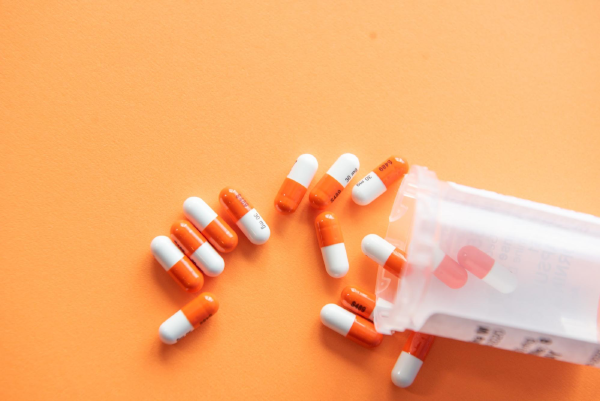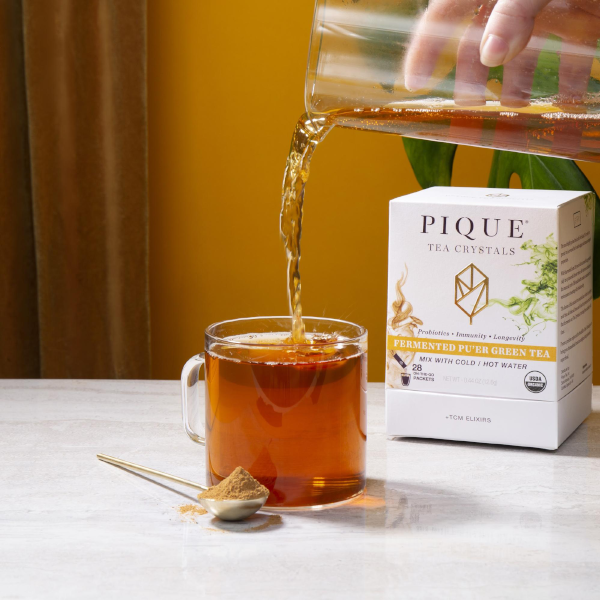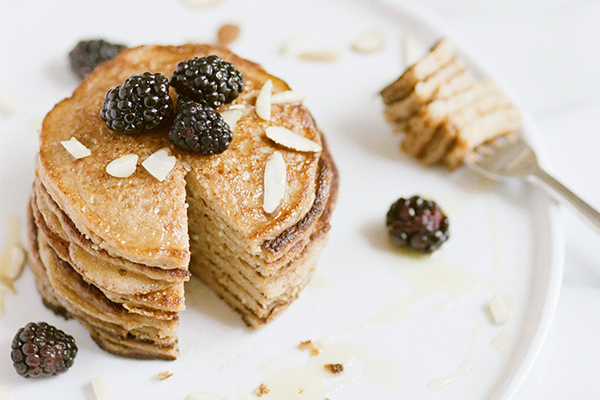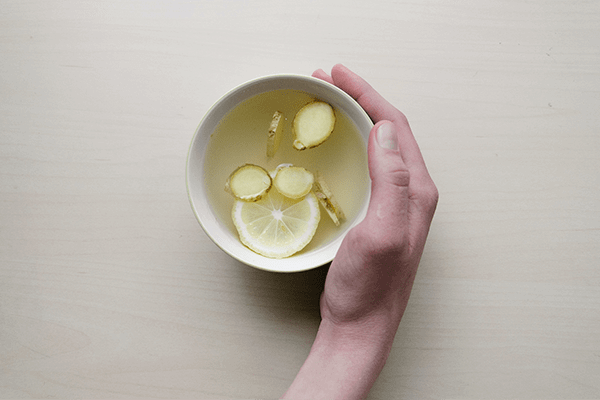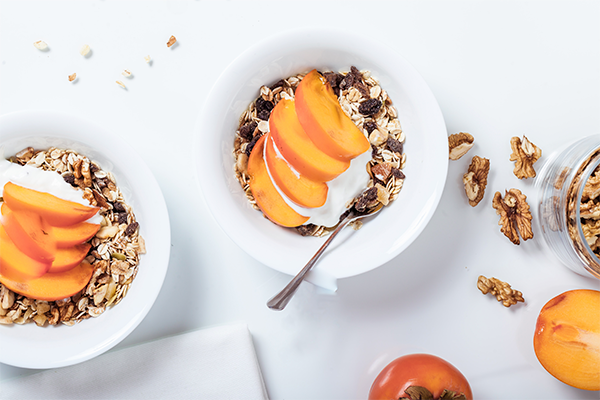Though antibiotics are prescribed to treat bacterial infections, many people are unaware of the harmful impact they can sometimes have on your gut health. While we’re definitely not suggesting that you forgo your doctor’s antibiotic treatment, you can take steps to help prevent against the side effects wreaking havoc on your system.
We’re breaking down exactly how antibiotics affect your body and why taking probiotics with antibiotics may be a good idea.
We’ll also share the best tips for helping your system remains in balance before, during, and after your treatment.
How Antibiotics May Negatively Alter Your Gut
Before you can understand the impact of antibiotics on gut health, it pays to know more about your gut first.
Why Your Gut Health Matters
Current research recognizes the gut as a “real organ” since it can trigger metabolic functions and an inflammatory response from your immune system (1).
You may also be surprised to learn that the human gut contains over three pounds of various strains of bacteria and more than 100 trillion microorganisms.
While that may sound alarming, this healthy mix of bacteria is actually a good thing. When it’s in the proper balance, your gut helps regulate hormones, support your immune system, balance moods, helps your body defend against harmful pathogens, and even produce vitamins (2).
Conversely, when your gut is out of balance (known as dysbiosis), you may start feeling a host of unwanted symptoms like low energy, digestive distress, and a general feeling of being unwell (2).
What can cause such an imbalance? Stress, smoking, drinking too much alcohol, consuming excess sugar and artificial sweeteners, and taking antibiotics can all disrupt a healthy gut balance.
And emerging research shows that antibiotics can do a number on your gut health, especially in this weakened state.
The Problems Associated with Taking Antibiotics
Researchers have learned that antibiotics can’t distinguish between good and bad bacteria.
Unfortunately, this means antibiotics tend to wipe out both types to ensure that harmful pathogens are destroyed as needed (3). While clearing out toxins is helpful, when antibiotics kill good bacteria, they become an issue.
In a meta-analysis of studies, scientists discovered that taking antibiotics can decrease your gut’s microbial diversity by 25% in as little as seven days (3).
When this happens, you may become more vulnerable to overgrowths of bad pathogens — such as Salmonella Typhimurium — which can lead to more severe health problems and symptoms (3).
Another systematic review of research found that many broad-spectrum antibiotics negatively impact gut balance by leaving it susceptible to colonization from bad pathogens.
This may cause an overgrowth of Clostridium difficile, a type of harmful bacteria (4). The C. diff strain can lead to diarrhea, bloating, gastritis (i.e., inflammation of the stomach), and intestinal pain (4).
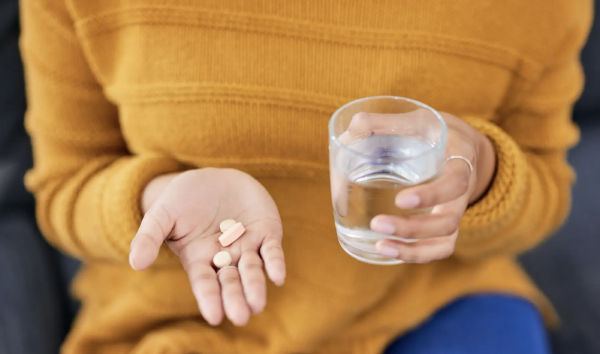
What to Keep In Mind If You Have to Take Antibiotics
Of course, there are times when you can’t avoid a course of antibiotics. You may have an underlying bacterial infection that needs to be treated quickly with antibiotic therapy before things spiral and get worse.
Fortunately, you can take a few steps to protect your gut, starting with probiotics.
Probiotics to the Rescue
Current research shows that taking probiotics with antibiotics can help your body combat some of the adverse side effects.
One side effect in particular, antibiotic diarrhea, was lessened when people used probiotic supplements with their course of antibiotics (5). Researchers discovered the probiotics were helpful for both preventative measures and treatment in that particular study.
Another body of research highlighted how prebiotics, which are short-chain non-digestible carbs that help balance bacteria in the gut, and probiotic bacteria strains (such as Lactobacillus and Bifidobacterium) can help your body combat antibiotic side effects (4)(6). So you may want to increase your intake of probiotic foods, prebiotic fiber, and fermented foods (more on this later!).
When To Take Probiotics and Antibiotics
A good general rule of thumb is to space out your probiotic supplements with your antibiotics.
Take your probiotics either two hours before or after your antibiotic so they both have a chance to work their magic without interfering with each other.
We also suggest looking for probiotic strains with at least 10 billion CFUs (colony forming units) to guarantee you have a broad mix of healthy bacteria (2).
What to Eat While Taking Antibiotics
Along with probiotic supplements, what you eat can also impact how harshly antibiotics affect your system and gut health. To ensure your good bacteria continues to flourish, keep these dietary tips in mind:
1. Avoid Sugar
Sugar can feed yeast in your gut, which may lead to an overgrowth of unfriendly bacteria.
This is why so many people tend to get horrible yeast infections after taking antibiotics for urinary tract infections (UTIs).
So as soon as you know you have to take antibiotics, the best thing you can do is obsessively avoid sugar for the duration of your antibiotics course.
This includes not only sweets, but also high-carb foods, and alcohol (which are processed as sugar by the body).
2. Enjoy Prebiotic-Rich Foods Packed with Fiber
Upping your intake of fibrous, prebiotic-rich veggies will make your gut super happy.
The indigestible plant fibers in lightly steamed collard greens, chard, kale, and spinach feed the good bacteria in your gut and colon. Plus, they help ensure regular bowel movements so bad bacteria don’t linger in your system too long.
Raw asparagus, dandelion greens, leeks, onions, and seaweed contain another type of fiber known as inulin. This also supports the good bacteria in your gut.
Flaxseeds are another fantastic option here as well. However, you may want to skip the whole grains (despite their high fiber) as they may contribute to excess sugar or contain gluten (see tips #1 and #4).
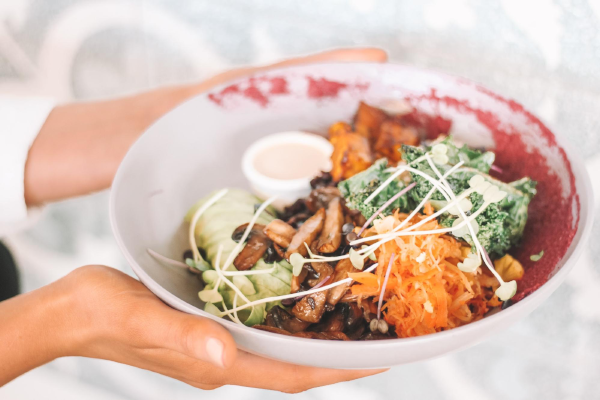
3. Eat One Serving of Fermented Foods Daily
The amazing health benefits of fermented foods make them an excellent addition to your diet anytime, but especially crucial if you’re taking antibiotics.
These foods are naturally high in friendly bacteria (such as Lactobacillus), and they help feed your good bacteria. Just be aware that overeating fermented foods can turn things sour. That’s why it’s best to enjoy only one serving of fermented foods per day — either with breakfast or lunch.
Pickles, sauerkraut, kimchi, kefir, and tempeh are wonderful, healthy, fermented foods to include in your diet. They all contain the helpful live bacteria your gut needs when antibiotics clear house.
4. Try Going Gluten-Free
Gluten is an irritating substance that can makes matters worse when you’re taking antibiotics.
Not only can it contribute to inflammation, but studies show it can also disrupt the bacteria balance in your gut.
Scientists from one study found that participants improved their microbiome diversity (i.e., their mix of healthy gut bacteria) when they cut gluten for just 13 weeks (7).
Try going gluten-free as you take antibiotics, and shortly after treatment, until your gut balance is restored to its optimal health. If you’re feeling particularly well, you may want to ditch gluten forever.
5. Use Collagen to Support Your Gut Lining
Because antibiotics can be so harsh, they can impair your gut lining by leaving tiny “holes” in your stomach lining and GI tract. This may lead to leaky gut syndrome, a condition in which harmful particles pass through these “holes” and into your system.
While collagen doesn’t directly feed the bacteria in your gut, it supports the gut lining to help prevent the damage. So you’ll want to consume bone broth (which is loaded with collagen), take a collagen supplement, or switch to collagen-rich protein powder to score this benefit.
6. Add More Polyphenols
Foods packed with polyphenols — a type of micronutrient and antioxidant that promotes the growth of beneficial bacteria — can also help optimize your gut health.
Polyphenol-rich foods include apples, blueberries, cherries, plums, pomegranates, and hazelnuts. And guess what? Tea leaves are also high in polyphenols and other healthy gut-supporting perks.
4 Teas that Support a Healthy Gut Microbiome
Several types of tea have been shown to encourage better gut health. Since we have an entire guide on the topic, we’ll just offer a brief overview here:
Black Tea
Black tea has the highest amount of prebiotics of all the tea types. And since its molecules are larger than those found in other teas, their prebiotics will stay in your intestinal tract longer rather than being absorbed right away. As this happens, the prebiotics will help foster beneficial bacteria growth and help aid digestion, two advantages you want for better gut microbiota.
Green Tea
Green tea is bursting with prebiotic goodness, polyphenols, and a specific type of catechin known as EGCG (i.e., epigallocatechin gallate). This powerful combination may help your body maintain a strong gut lining and aid in healthy digestion.
White Tea
White tea helps support good gut bacteria and promotes a healthy digestive system. The anti-inflammatory benefits of white tea may help calm your digestive tract after irritations from food or antibiotic use.
Fermented Teas such as Pu’er
Fermented teas like Pu’er have prebiotic and probiotic properties that make it ideal for supporting the digestive tract. Chinese herbalists say Pu’er tea is known to “warm the stomach,” and help maintain a healthy balance of gut bacteria.
In addition to these top four teas for better gut health, you can find three more that helps promote healthy digestion in this guide.
No matter which tea you choose, understand that quality matters. You want to drink tea made from the first flush (or harvest), and make sure the tea leaves are minimally processed. The more processing tea leaves undergo, the lower their polyphenol content.
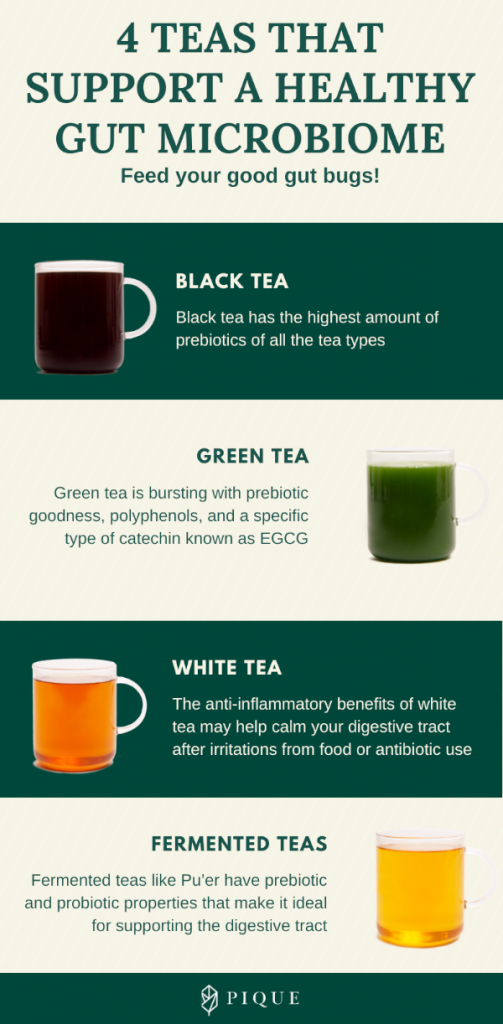
Final Thoughts
To help your body repel pathogenic bacteria and boost your gut immunity, stock up on the best teas for gut health and eat a diet low in sugar and high in probiotic foods and prebiotic fiber. This may help to reduce your chances of needing antibiotics in the first place, which may prevent antibiotic resistance in your body later on.
But as we touched on earlier, you may not be able to avoid taking a course of antibiotics. In some cases, this is the best and only treatment option. With the use of probiotics and the other helpful tips in this guide, you may help your body better handle antibiotic side effects. And you’ll help restore your gut balance sooner when your treatment is over.
For more help improving your gut health, we encourage you to check out this guide next!
